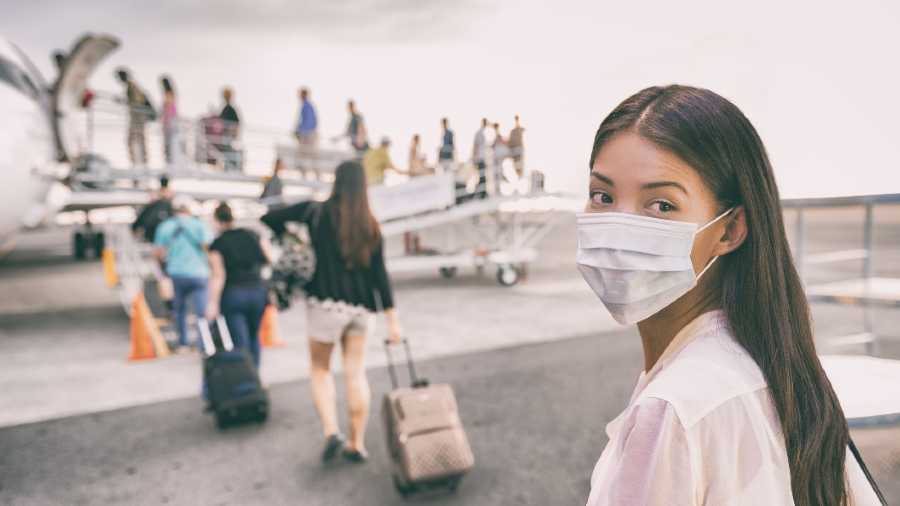Many people are seeking definitive answers about what they can and can’t do after being vaccinated against Covid-19. But there’s no one-size-fits-all answer to those questions because risk changes from one individual to the next, depending on a person’s overall health, where they live and those they spend time with.
The bottom line is that vaccines are highly protective against serious illness, and, with some precautions, will allow people to return to more normal lives, experts say.
“There’s been a lot of mis-communication about what the risks really are to vaccinated people, and how vaccinated people should be thinking about their lives,” said Dr Ashish K. Jha, dean of the Brown University School of Public Health, US. “There are people who think we are back to Square 1, but we are in a much, much better place.”
What’s my risk of getting Covid if I’m vaccinated?
Your individual risk for Covid after vaccination also depends on local conditions, your overall health, the precautions you take and how often you are exposed to unvaccinated people who could be infected.
“People want to be told what to do — is it safe if I do this?” said Dr Sharon Balter, director of the Division of Communicable Disease Control and Prevention at the Los Angeles County Department of Public Health. “What we can say is, ‘These are the things that are more risky, and these are the things that are less risky.’”
Balter’s team has recently collected surveillance data that give us a clearer picture of the difference in risk to the vaccinated and unvaccinated as the delta variant surged from May 1 through July 25. They studied infections in 10,895 fully vaccinated people and 30,801 unvaccinated people. The data showed that:
• The rate of infection in unvaccinated people is five times the rate of infection in vaccinated people.
• The rate of hospitalisation among the vaccinated was one per 1,00,000 people.
• Older vaccinated people were most vulnerable to serious illness after a breakthrough infection. The median age of vaccinated people who were hospitalised for Covid was 64 years. Among unvaccinated people who were hospitalised, the median age was 49.
• The delta variant appears to have increased the risk of breakthrough infections to vaccinated people. At the start of the study, before delta was dominant, unvaccinated people became infected 10 times as often as vaccinated people did. By the end of study period, when delta accoun-ted for almost 90 per cent of infec-tions, unvaccinated people were five times as likely to get infected as vaccinated people.
What’s the chance of a vaccinated person spreading Covid-19?
While unvaccinated people are by far at the highest risk for catching and spreading Covid, it’s also possible for a vaccinated person to become infected and transmit the illness to others. Even so, many experts believe the risk of getting infected from a vaccinated person is still relatively low. Jha said, “The asymptomatic, presymptomatic spread could happen, but we haven’t seen it among vaccinated people with any frequency.”
Can unvaccinated children go to school safely?
Children under 12 probably will not be eligible for vaccination until the end of the year. As a result, the best way to protect them is to make sure all the adults and older kids around them are vaccinated.
Studies show that schools have not been a major cause of Covid-spreading events, particularly when a number of prevention measures are in place. A combination of precautions — masking indoors, keeping students at least three feet apart in classrooms, keeping students in separate cohorts or “pods”, encouraging hand washing and regular testing, and quarantining — have been effective.
While many of those studies were undertaken before the delta variant became dominant, they also happened when most teachers, staff and parents were unvaccinated, so public health experts are hopeful that the same precautions will work well in the fall.
Can a vaccinated person visit with an elderly vaccinated person indoors without a mask?
In many cases it will be relatively safe for vaccinated people to spend time, unmasked, with an older relative. But the risk depends on local conditions and the precautions the visitor has taken in the days leading up to the visit. In areas where community vaccination rates are low and overall infection rates are high, meeting outdoors or wearing a mask may be advised.
Is it safe to work in an office?
The answer depends on the precautions your workplace has taken. Offices that mandate vaccination will be safer, but vaccination rates need to exceed 90 per cent. Even an 85 per cent vaccination rate is not enough, Jha said.
NYTNS










